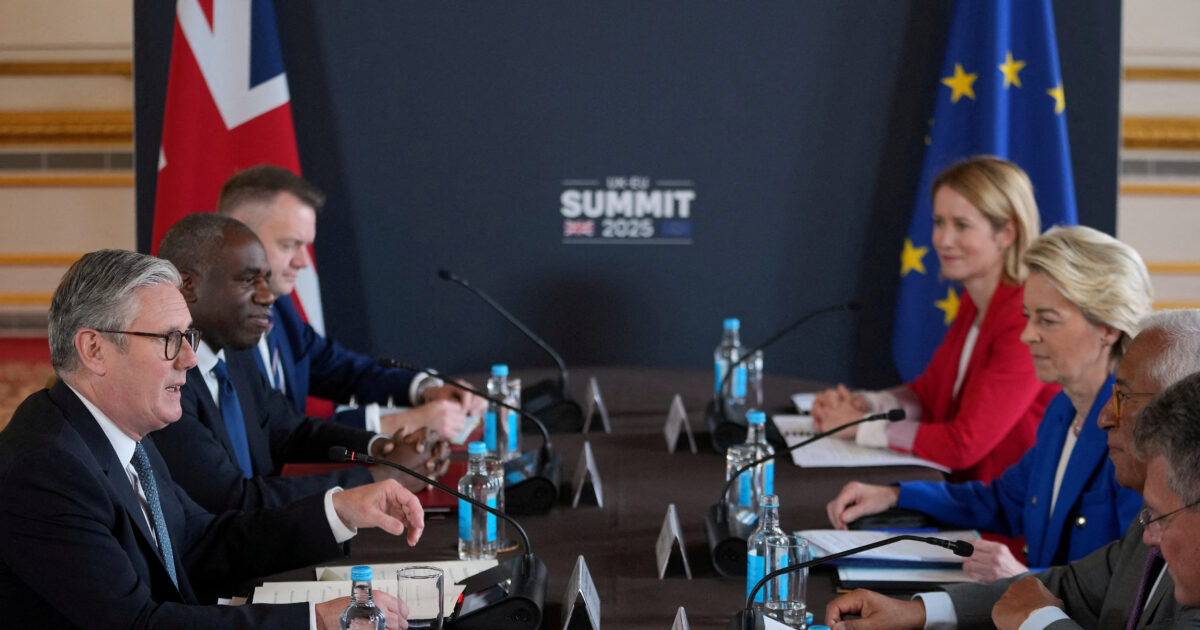European Union leaders (EU) will say today (26.6.2025) to the European Commission (ed. Commission) If they want a quick trade agreement with the United States at the cost of having Washington better terms or escalating the battle with the hope of something better.
A quick deal seems to be the choice most people prefer, officials and diplomats say, as the EU can then seek to deal with adverse trends with some of its own balancing measures. The Commission, which is negotiating trade agreements on behalf of the EU, will ask the leaders of its 27 countries, who will meet in Brussels, how they want to respond to the July 9th deadline, which has been set by President Donald Trump for two weeks.
The European Coalition has stated that it is making efforts for a mutually beneficial agreement, but as Washington seems ready to insist on 10% of more EU goods and threatens with higher rates, EU diplomats say that increasing number of EU countries now want.
“It is … in the interest of everyone not to further escalate the trade conflict with the United States,” said German Chancellor Friedrich Mertz in parliament yesterday (24.6.2025).
“I know that the European Commission is negotiating with great care and has our full support. I hope we will reach a solution with the United States until early July, “Mertz said.
The EU already faces 50% US duties on steel and aluminum imports and 25% for cars and car spare parts, along with 10% duties on most of its other products, which Trump has threatened to increase to 50% if there is no agreement.
So far, the United States has only completed a trade agreement with Britain, with the 10% overall duty still in force. US officials say this rate will not be reduced for any commercial partner. 23 of the leaders will go to Brussels straight from the NATO summit in The Hague. Reuters estimates that few will want a trade war to follow the agreement reached there.
At their meeting in Brussels, EU leaders will discuss the most pressing issues faced by their coalition, especially the Russian war against Ukraine, Europe’s defense and the economy.
“Ukraine was decisive in its efforts to start a real peace process. And the EU will remain as decisive in Ukraine’s support, “European Council President Antonio Costa said before the two -day meeting.
Leaders are expected to discuss the extension of existing EU sanctions against Russia, as well as the adoption of additional restrictive measures.
The Commission proposed earlier this month an 18th sanctions package with additional measures against Russia’s energy and banking sector.
While most EU countries are steadily supporting Kiev, Hungarian Prime Minister Victor Orban has repeatedly opposed Ukraine’s military support and Ukraine’s possible accession to the EU. Ukrainian President Volodimir Zelenski is expected to address EU.
EU leaders are also expected to discuss the conflict between Israel and Iran, the war in Gaza and the European coalition’s relations with Israel.
“I call on all parties to show self -restraint and respect for Law and Nuclear Security,” Costa said. “Diplomacy remains the only way for peace and security to come to the Middle East region. Excessively many civilians will again be the victims of a further escalation. ” Other issues on the leaders’ agenda include an increase in EU defense capabilities in the coming years and improving its competitiveness. The goal is “to build a more competitive, safer and more autonomous Europe for citizens,” Costa said.
